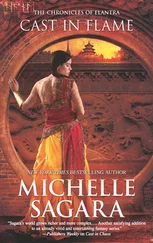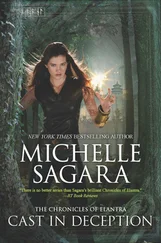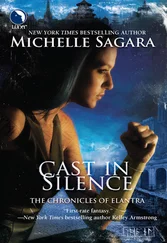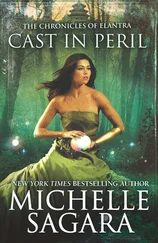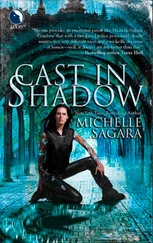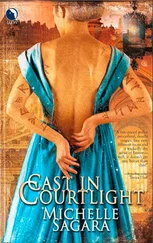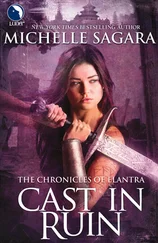1 ...8 9 10 12 13 14 ...21 “We’re here to address those concerns,” she said, wearing her best Hawk’s face although her head really was throbbing. “Humans have … stories. Those stories aren’t like the Tha’alaan,” she added softly. “They’re not real stories. People don’t experience them as memories, and they certainly don’t live them the way some people can live old memories in the Tha’alaan.”
“These stories, are they true?”
Kaylin looked to Severn for help. As a rule, she didn’t ask for rescue, having learned early that it was pointless. But when it came to people, Severn was just better. He always had been.
Ybelline, however, lifted a hand. “Scoros,” she said, “sit. The stories that she speaks of are not true in the sense that our stories are true. They change with time, they change with the teller of the tale.”
He frowned.
“Scoros,” Ybelline added to Kaylin, “is a teacher. He teaches the Tha’alanari, and he is respected. He understands what they will face.”
Kaylin nodded.
“It is however very seldom that my kin are exposed to your stories, and some explanation will be required.”
Severn shrugged again. “You were always better at creating stories than I was,” he told her.
“But not better at lying.”
“No. This however is yours.”
She pressed her palms into her closed eyes for a minute. Then she nodded.
“Understand,” she said, addressing all of the Tha’alani present, “that humans don’t have the Tha’alaan. We don’t have access to perfect memories. I can’t remember clearly what I was doing eight years ago—but if you wanted to, you could. I can construct what I was probably doing eight years ago. And if it was utterly necessary, I could ask Ybelline to actually sort through my memories and tell me what I was doing—but without the help of the Tha’alani, if my twelve-year-old self wasn’t doing something in easy reach of Records, there’s no way for me to be certain.”
Scoros nodded; clearly this was nothing new to him.
“This is especially true of people who have had no sleep for a few years.”
Scoros frowned and Ybelline said, “She is not being literal.”
His frown deepened slightly, and then eased. Ybelline was speaking Elantran for their benefit, but, clearly, was speaking in other ways as well.
“The oldest of our stories are probably religious stories,” Kaylin continued. “Stories about the gods.”
“These are the ones you remember?”
“Me? Not exactly. When I say oldest, I mean, the oldest ones that anyone knows about.” She winced and gave up. “The earliest stories we’re told, we’re told as children, usually by our parents, sometimes by our friends. Children don’t always have enough experience to understand very, very complicated things, and stories are a way of explaining the world to them.”
“But they’re not true.”
“Well, not exactly.”
“We do not understand what you are explaining, then.”
Scoros looked at Ybelline. Ybelline looked at Kaylin. Kaylin looked at the tabletop.
And Rennick stood up with a disgusted snort.
“Rennick, sit down,” Kaylin told him.
Rennick didn’t appear to hear her. Given the color he was turning, it might not have been an act.
“Castelord,” he said, managing somehow to be polite and icy at the same time. “Do you have no art, here?”
She frowned. “Art?”
“Paintings. Sculptures. Tapestries. Art.”
“We have,” Scoros answered. His voice had dropped a few degrees as well.
“If what I’ve heard today is true, the Tha’alani have perfect memory. Anything, at any time, that any of you have experienced, you can recall. True?”
“Rennick—”
“No, Private. If I am to do my job, as you so quaintly call it, I need to understand what I’m working with, or working against. You aren’t even asking the right questions.”
“Rennick—”
“Kaylin, no,” Severn said, his quiet voice still audible over the echoes of Rennick’s much louder tirade. “He’s right. My apologies for the interruption, Mr. Rennick. Please continue.”
“Is it true?”
Scoros was silent for a moment. Kaylin imagined that he was trying to figure out what Rennick’s game was. She could sympathize. “It is as you say,” Scoros said.
“What is the purpose of your art?”
“Pardon?”
“Why do you make it? The sculptures? The paintings? The tapestries?”
“What does this have to do with your stories?”
“Everything.”
“I am not an artist,” Scoros replied. “But I will attempt to answer. We create these things because they are beautiful.”
“Beautiful? More beautiful than life? More beautiful than what’s real?”
Scoros’s silence was longer and quieter. When he spoke again, the chill in the words was gone. “Yes. And no. They are not the same.” The tail end of what might have been a question colored the last word.
“But you could find beautiful things, surely, in the—what did you call it? The Tha’alaan?”
“Yes. That is what it is called.”
“Can you?”
“Yes. But it is not a simple matter of demanding beauty and having it surrendered to us. We are not the same person. No two of us think exactly the same way, although to the deaf—”
“Scoros,” Ybelline said softly.
“To the humans,” Scoros corrected himself. “To your kin, we might seem thus. We do not have the range of … differences. Even so, some memories will strike different Tha’alani as beautiful but not all.”
“Yes, well. You can find beauty, but you choose to create it instead?”
“Some of my kin do so, yes.”
“Imagine, for a moment, what it is like to be my kin.”
“Rennick—”
Scoros, however, stood. The two men faced each other across the length of the table. Severn kicked Kaylin under the same table, motioning for silence.
“He doesn’t understand what they’ve suffered,” she hissed.
“Then allow Scoros to make that clear, if that is their wish.”
Scoros’s antennae were weaving frantically in the air, and Ybelline’s were doing a similar dance. But watching the two, Kaylin could see the differences in their gestures, these antennae that had seemed so much like a threat. Ybelline’s movements were graceful and exact, as if each rise and fall of stalk was perfectly timed and deliberate. Scoros’s looked like whips.
Two conversations. Two arguments.
Scoros turned to Rennick. “I spend little time imagining anything else,” he told the playwright. Ice was gone; fire was present. He was angry. “My job—my duty—is to prepare our young for life in your world. And it is a life that they are not suited to live. They do not lie, they do not fear, they do not hoard. Nor do they steal or kill.
“Imagine what it is like to be you? What is it, exactly, that you do that allows you to come here and speak thus to us? You create these—these lies—and you spread them. And you are proud of this. Do you think we want to serve—”
“Scoros.” If Kaylin had ever wondered whether or not Ybelline’s kindness was based in strength, she had her answer. There was steel there.
“What do you value?” Scoros snapped, retreating from the previous sentence as if it were death. “Gold. Precious gems. Fine cloth—things. How do you reassure yourself of your own worth? By soliciting the admiration of people who value only that much. You spoke of love, in your travesty of—of—disinformation. What do you know about love? Your love is little better than base greed and insecurity! You want the regard of your peers, but you allow none to be peers. You want impossible, stupid things.
“You kill each other, rape each other, steal from each other—how are you to speak our truths? How are you to decide what beauty means?”
Читать дальше


